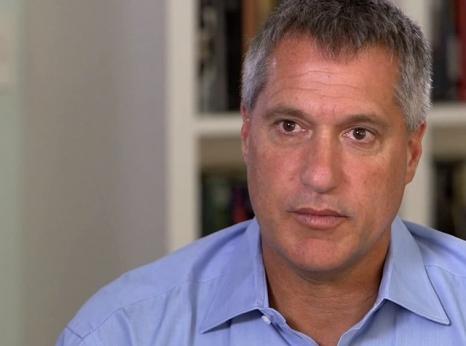USA: Environmental Lawyer Under House Arrest

On 9 December, Steven Donziger, a human rights lawyer and environmental rights defender, was released from jail to spend the rest of his sentence under house arrest. While it is great news that he has been released from prison, Steven Donziger must now carry out the rest of his sentence under house arrest and Amnesty International is still calling for his immediate and unconditional release.
Amnesty International’s Urgent Action Network mobilized massively across the world, shutting down two target inboxes. Steven is incredibly grateful for the support he received and all the solidarity letters he received as well. We will continue to campaign with partner organizations on his behalf to convince the US Department of Justice to take over the case.
Before prison, he was under house arrest for over 800 days for the politically motivated ‘contempt of court’ charge, which is still currently under appeal. The ruling of the Appeals court is expected to be handed down in the coming weeks. Amnesty International continues to call for Steven Donziger’s immediate and unconditional release, now from house arrest, and for the US Department of Justice to assume jurisdiction over his case instead of the current private prosecutor. Amnesty International is further calling on the US authorities to fully implement the opinion of the United Nations Working Group on Arbitrary Detention, including to launch a full investigation into the circumstances that led to his arbitrary detention.
Steven Donziger first began his work for environmental justice in 1993, when he visited Ecuador and became part of the legal team representing victims of oil dumping in an emblematic case against Chevron Corporation, following accusations that the corporation was responsible for what is widely considered one of the worst oil-related environmental disasters in contemporary history.
In 2011, after years of judicial proceedings, a court in Ecuador found Chevron Corporation liable for causing serious environmental and health damage to the Amazon rainforest and the communities who lived there. The court determined that the corporation had deliberately discharged billions of gallons of oil waste onto Indigenous ancestral lands as a cost-saving measure and ordered to pay billions of dollars in damages.
After losing the case in Ecuador, Chevron moved all its assets out of the country to avoid paying damages and threatened the Ecuadorian victims with “a lifetime of litigation” unless they dropped their case. Chevron then filed a lawsuit in the USA against all the plaintiffs named in the Ecuador lawsuit as well as Steven Donziger and other lawyers, nongovernmental organizations and a number of experts who supported their case.
The judicial proceedings that followed since have been marred by flaws that have rendered Steven Donziger’s detention arbitrary, including a lack of impartiality by the courts, a disproportionate interference with his right to liberty imposed as a means of circumventing attorney/client privilege, and a deprivation of liberty that has continued beyond the maximum period foreseen by the charges laid against him.
In 2019, the judge presiding over the civil case against Steven Donziger took the extraordinary decision to appoint a private law firm as special prosecutors over criminal contempt charges that the US Attorney’s office for the Southern District of New York declined to pursue. On 6 August 2019, the judge presiding over the criminal contempt case ordered Steven Donziger to surrender his passport and submit to both GPS tracking and home confinement. Steven Donziger has been deprived of his liberty since then.
The UN Working Group on Arbitrary Detention is a group of independent experts appointed by the Human Rights Council mandated to investigate cases of deprivation of liberty imposed arbitrarily or inconsistently with international standards. The opinions of the Working Group are authoritative decisions from a UN expert mechanism and carry legal weight. The obligations contained in the international treaties which form the basis for the Working Groups decision are legally binding upon states party. The United States has been a state party to the International Covenant on Civil and Political Rights since 1992.